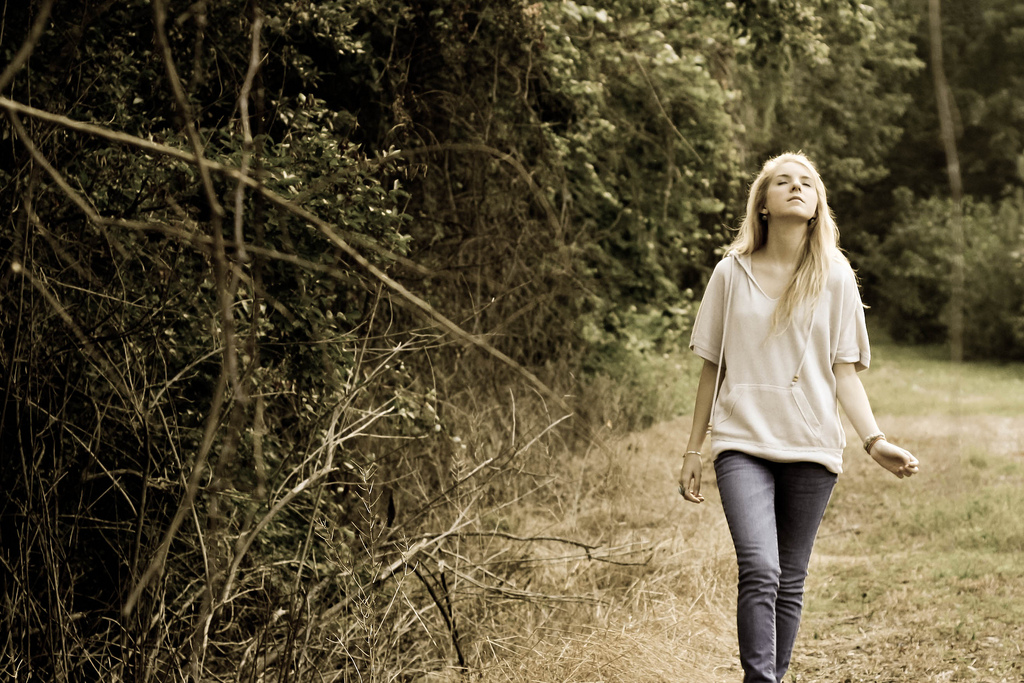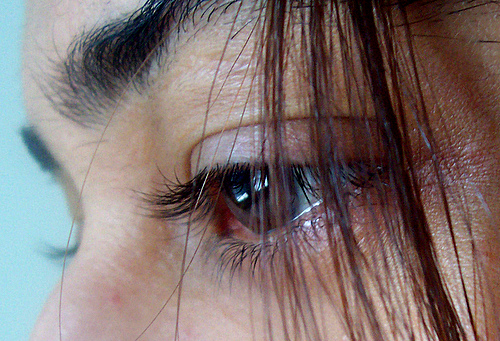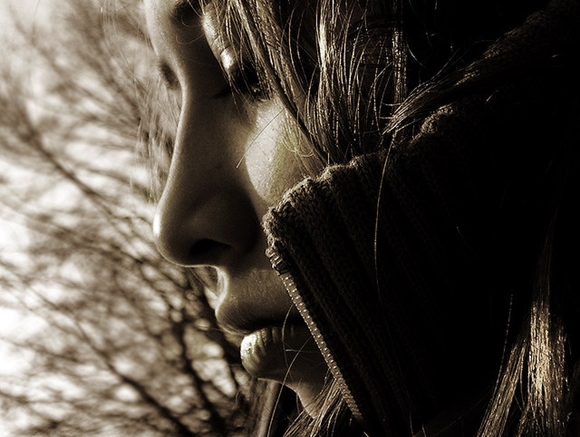It all came back to me. Reading my journals from ten years ago, I remember how painfully stuck I was in my inner turmoils. Every day, for several years, my entry was almost identical.
First, the confessions. I ate too much. Smoked too much. Did not exercise enough. Made a fool of myself at a party.
Then, the self-beating. I am so weak and hopeless. How can I be so stupid… again? I’m never going to get out of this.
Next, the psychoanalysis explaining my behaviours and inability to change.
Then, the vows and commitments. Tomorrow, I will stop smoking. I will socialize more. I will wake up early and spend the whole day writing.
Tomorrow is The Day of Transformation! The beginning of a new phase of my life: when I will become my best self, the highest potential of who I am!
No more excuses. Finally, once and for all, I will be the real me! This is not me, and I don’t want to be this disgusting person anymore.
Finally, the desperate grasp for hope. I have a good feeling about this. I know I’ve said this before, but this time it’s different.
Insanity, Albert Einstein said, is doing the same thing over and over, expecting different results.
The thing is, until I looked at my journal from the perspective of my life today, I did not realise the extent I was on the hamster-wheel. It seems absurd now, but I actually thought that I was getting somewhere.
The Illusion of Control
I felt so insecure with myself and my life that I was constantly driving myself to try to fix it. But little did I know that my actions were taking me further and further away from myself, from the only place where my deep insecurity could be healed.
When I look back at my actions, it’s almost as if I wasn’t really conscious doing them. They were mostly defensive actions, and actions that went against my values. They didn’t leave me feeling good about myself because they did come from my heart. They simply reflected the conflicts in me; as I acted out my internal world, my actions simply reinforced the turmoils I was experiencing inside.
I thought I could make my inner turmoils stop by fixing my outside world. I used to think, “If only this situation or that situation would change, I would be at peace inside.” What I didn’t realise was that I needed to do something to change the way I behaved inside.
I didn’t really understand the concept of self-change, and I ended up focusing on fixing my external self – i.e. how I appeared on the outside. My inner world was a mess, and the more I tried to fix myself, the more tangled up I became.
But oddly, it gave me the illusion that I was making progress, so I kept repeating the same things over and over.
Eventually, I did become unstuck. Here are three things I learned.
#1 You can simply allow the untangling to happen.
Contrary to what we think, the more we try to fix things the more entangled we may get. This is because we’re acting out of a place of being tightly wound-up. Thus, we have little space to maneuver ourselves within that tight space, and as we exhaust more of our resources the more tightly wound-up we become.
If there is one thing that I learned in all my years of personal growth, it is this: There is a natural mechanism that allows our turmoils to untangle, if we do nothing.
As simple as this wisdom is, most people would not choose to do nothing. It is far too uncomfortable for them. This is the root of all addictions and self-destructive behaviours: the inability to stay with the discomfort of not acting.
#2 Trust that it is safe to not act or react.
The reason we find it difficult to do nothing is we don’t trust that it is safe. You might say, how do I trust? Trusting is an action, not a quality you either have or don’t have. It’s a choice, a decision of where you want to stand about something.
Often, when we don’t trust, it’s not because we have chosen not to trust something but we are vague about it (we haven’t decided). So it’s not something that we must wait to feel. Rather, it’s a state we can choose to hold right now.
#3 The right action will be shown when you stop trying to control.
We often worry that unless we do something about a situation, we won’t reach a resolution or improve the situation. We believe that not doing something is irresponsible, and the situation will worsen if we take our hands off it.
Hence, we end up madly trying to control things, overdoing our planning in a bid to bring about rigidly conceived outcomes. As you probably experienced, the more you try to control things, the more it seems to be out of your control. This is because when your actions are driven out of fear, they tend not to yield resolutions.
When I stopped trying to force a resolution or a specific outcome, many times I was surprised with an idea that was so refreshing, unthought-of and delightfully creative that time and time again it reinforced my belief that surrendering my fear-driven control is the way to go.
You see, there is a spiritual force that governs our lives. Beyond the cause-and-effect of the physical world, there is a greater intelligence that informs us of what we can do beyond our limited perspective of our problems. Ideas that come from a higher place. But we can’t hear it unless we stop efforting.
What did you experience when you let go of control? What happens when you surrender your problems to the unknown?
Photo by Shanon Wise






Thank you for a wonderful post ,Amyra Mah .. from … a ‘Work in Progress’ … Surrender was a tough thing to do… but the release of so much baggage was worth all the struggles.
So well said, Flo. Indeed, the initial discomfort does give way to release.
Appreciate your comments :)
I really appreciated this post, Amyra – I can relate strongly to “doing nothing” and letting the inner turmoils of life untangle themselves. It’s almost like, you allow yourself to “go through the experience” fully, and then come out on the other side…so subtle and hard to describe with words, but makes much sense in my mind. Thanks for sharing some light on this powerful subtly :)
Hey there – Thank you for your beautiful comments! Doesn’t it feel like it requires an element of trust, coupled with some level of curiosity, to allow ourselves to go through the experience fully? To give ourselves permission to drop into the experience, letting go of “trying to control” and ironically coming to rest in the place of infinite possibilities.
Love and Blessings to you!
Nice post. It is rather unconventional to say that we should let go of the control or avoid to react. Western world , in particular , is unused to this concept. We, in the West ,to believe that we can control our life and refuse to acknowledge that there is some intelligence power beyond me which can be trusted. This power comes to my rescue when I surrender to the Existence. This power speaks to me through intuition during my vacant hours when the mind is still. Wordsworth had understood it when he said in his poem ” The Daffodils”, “For oft, when on my couch I lie/ In vacant or in pensive mood / They flash upon that inward eye / Which is the bliss of the solitude…”
How beautifully said, Mahavir. I love that you refer to this intelligence as “power”. So often we mistake ‘false power’ with true power, which is the kind of power that comes from a higher perspective taking into consideration of our entire soul’s journey, rather than from the limited perspective of our low-level struggles.
“The bliss of the solitude”… it is so near and accessible if only we stop for a moment.
Hello amyra,
Scientists say that the conscience brain (the part that thinks) works at a speed of 40 bit/sec. While the subconscious (the default part that doesn’t think) works at 4,000,000 bits/sec.
Looking at these numbers you can understand why you can’t change.
Change is not easy. Your brain is working against you.
The only way is by adopting habits for over 30 days until the brain memorizes them and shifts them to the subconscious, then they become easy.
I like how you repeated how we should not try to over-control. There are many factors of life that are out of our control. I think the real trick is to choose a path and adapt to changes that come.
Over control can only lead to stress and confusion. “Adaptability” will always keep you on track and you won’t be left behind as changes occur.
Just relax. Remember we all have our problems. You are healthy, you have friends and family, you are trying to change. To me that is success!
Hi Sal,
Thanks for pointing out the brain science behind change. I love the emphasis on ‘adaptability’ as part of the formula for successful change. This is where a lot of us get stuck: our inability (actually unwillingness) to adapt and flow with the change we’ve already made, to stay in the discomfort of unfamiliarity long enough until our whole being adapts to it.
Amyra
This quite well-written and enjoyable article hints at a sublime truth, at the nature of spiritual bliss had by relaxing into pain of any type.
Blessings, and you’ve done a good thing here.
Indeed, M – instead of running away from pain and increasing the illusion of pain as a no-go area, by relaxing into pain we often find the doorway to connectedness, bliss and inner peace.
Thank you for your words!
“I said to my soul, be still, and wait without hope
For hope would be hope for the wrong thing; wait without love
For love would be love of the wrong thing; there is yet faith
But the faith and the love and the hope are all in the waiting.
Wait without thought, for you are not ready for thought:
So the darkness shall be the light, and the stillness the dancing….”
~T.S. Eliot.
“If your thoughts are based on an image of unworthiness for any reason at all, you will manifest what those thoughts impart to the universal mind.”~ Wayne W. Dwyer.
I have enjoyed this post and each and every comment made. My final conclusion is we should practice stillness and relaxation. A hectic mind is unable to see. Maybe also “Don’t worry, be happy”.
“A hectic mind is unable to see.” I love that!
Thank you, Roswitha.
I enjoyed the article and I like the flow of your writing. However, I don’t think that taking action is the problem, it’s about taking the right kind of action. Problems you described in the beginning arose not from taking too much action, but from too much thinking. You constantly said you wanted to change something but at the end of the day, took little action for real change.
Yes, sometimes you should let things unwind, not keep score or beat yourself up. But the only way you’ll be able to change or create a habit is by conscious action.
I suggest reading this – http://bit.ly/1srnWL4 – it will shed some light on the subject and I really think it will be beneficial to you.
Good luck!
Hi Phil, thanks for sharing your views! I agree that taking the right actions is the way to create change. My point, however, is that creating spaciousness and letting go of the efforting (including figuring it out, fixing, controlling, striving, etc.) can ALLOW ideas and our inner guidance to come forth about right actions. In a culture of “doing more and achieving more”, practising non-action (physical and mental) can be powerful and valuable for balancing the excesses that often lead to addictive behaviours and other lifestyle imbalances. From my experience, being in this space of balance and centeredness motivates me to take conscious actions much more powerfully than an externally-driven approach.
Blessings,
Amyra